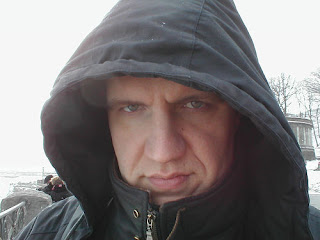While leafing through the Plain Dealer this morning, I came across an unusual spot. Seems there's a tribe of 350 or so in Brazil with an actual "primitive" language. As a student of linguistics, I have long accepted the claim that no language is primitive, that is, any thought can be expressed in any language. Building from these assumptions, smart folks like Noam Chomsky have tried to distill what the common denominators are to all human languages: Which features of human language are "hard-wired" in our brains from birth? What allows us to acquire language and use it to express abstract thought? They have claimed for several decades that certain universals are found in every human language, or shall we say, almost every human language?
The language of the Pirahã tribe of Brazil reportedly lacks some of the "universal" constructs we'd expect to see in a language. According to Der Spiegel, one of these missing constructs is recursion. In English recursion is rendered using subordinate clauses. For example: "This is the dog that bit the man who came to our door." (Relative pronouns underlined, subordinate clauses in italics.) Clauses modify and describe each other, so in the end the full meaning of the discourse is dependent upon its context.
The chief expert on the Pirahã language today is Daniel Everett, who not surprisingly has been working among the tribe as a Bible translator. It may be that his analysis is incorrect or incomplete. Others apparently have been dispatched to test his claims. The Plain Dealer article (sorry, no link available as of this writing) mentioned that current traditionalists had regarded Everett's claims as "putative" and insufficient to revolutionize the study of human language. I hope that Everett is not being dismissed as a lightweight because of his work as a Bible translator.
In the end it may be that the Pirahã language will serve to advance the claims of the thought-depends-on-language school--those who claim, "You cannot conceive in your mind what you cannot find words for." I don't know. Something in my world view seems to reject this idea...e.g. God, Trinity, infinity. But I must admit I could stand to learn from those who've dedicated much effort in the field.
Tuesday, June 19, 2007
Subscribe to:
Post Comments (Atom)

No comments:
Post a Comment